
August 24, 2025
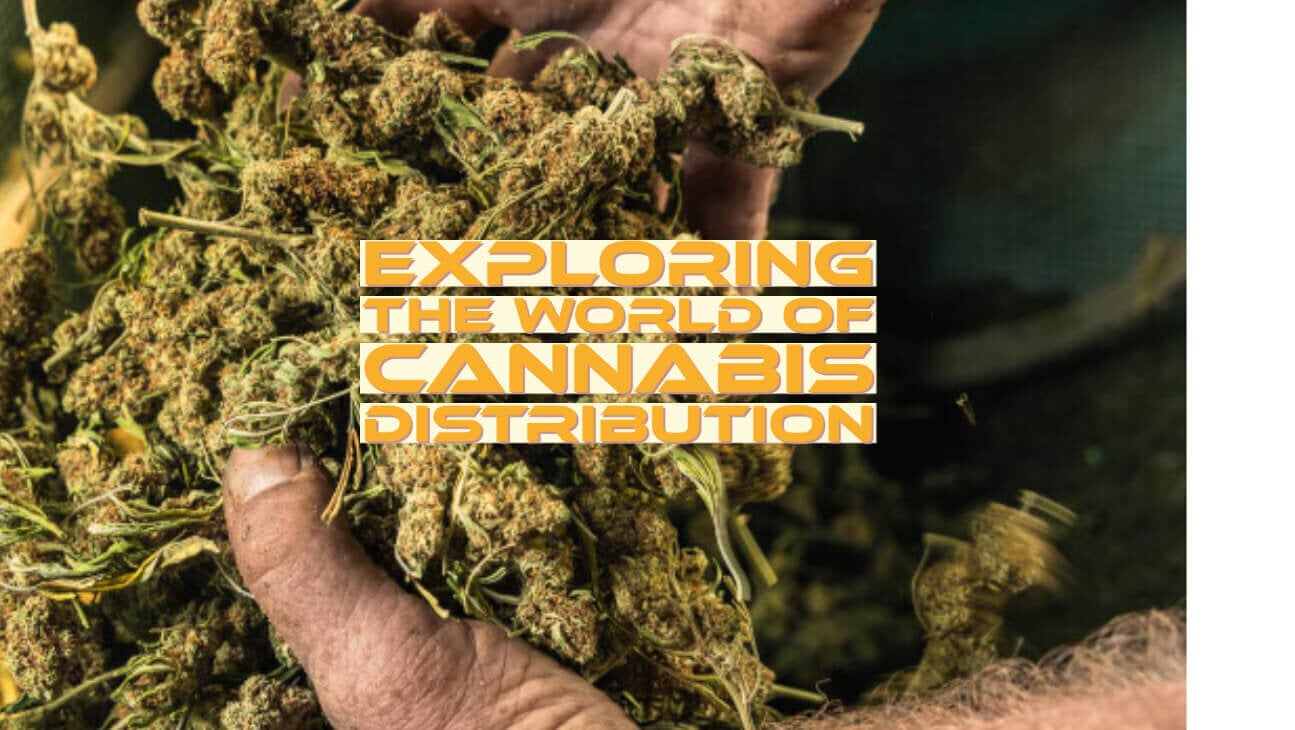
In the cannabis sector, the process of moving goods from cultivators and processors to merchants is handled by wholesalers. Distributors are often required to carry a certain license; in some countries, they are further required to coordinate product laboratory testing. The regulations governing cannabis enterprises at the state level and the conditions for obtaining licenses constantly change. Still, in most jurisdictions, a distributor's license will allow the holder to transport cannabis from producers and processors to retailers.
Distributors, for the most part, do not engage in the cultivation of cannabis or retail sales directly to consumers; rather, they operate as intermediaries, permitting sales between other firms rather than direct sales to end users. In most circumstances, distributors do not engage in cannabis production. It is the responsibility of distributors in certain states, like California, to have the cannabis products they sell tested in a laboratory. In contrast, manufacturers in other states, such as Oregon, must do it beforehand.
Cannabis distribution is a critical component of the cannabis business since it transports cannabis goods from farmers and producers to dispensaries and consumers. Cannabis distribution is transporting cannabis goods from one location to another while ensuring that the items are supplied safely and lawfully. The medical and recreational sectors are the two main marketplaces for cannabis sales.
Growers, processors, dispensaries, and patients with sufficient medical paperwork comprise the medicinal marijuana distribution chain. Cannabis distribution for recreational reasons comprises the movement of the substance from authorized growers and manufacturers to licensed dispensaries and individuals above the age of 21. Several nations control the distribution of cannabis products at the state level.
The laws of several jurisdictions strictly regulate cannabis distribution businesses. A corporation must show compliance with all applicable state testing, packaging, labeling, shipping, and storage rules to get one of these permits. Each cannabis product that moves through a distributor must be properly recorded, beginning with the grower or producer and ending with the testing results and final destination.
Within the context of the cannabis distribution business, "distribution" refers to the procedure whereby finished goods are conveyed from manufacturers to retail outlets. Wholesalers and retailers are connected via the use of distribution hubs. Distributors of cannabis and its many associated items store their inventory in a secure location specifically designed for the purpose.
Distribution is a crucial component of the cannabis market, even though it may be challenging and subject to stringent regulations. Large-scale cannabis sales operations are highly dependent on distribution. There is a possibility that the term "cannabis distributor" is interpreted somewhat differently in each of the states. However, a distributor can only deal with other firms in most of the country's areas.
They are not permitted to send items directly to customers, nor are they permitted to have any interaction with end users. Distributors may be entrusted with a variety of responsibilities along the supply chain.
The "marijuana distribution center" refers to a warehouse that stockpiles cannabis to supply merchants and producers. When orders for certain items come in from dispensaries, those items could be chosen, packed, and shipped out at that time. There are many different ways that this might be approached.
Consider the scenario of a merchant who orders warehoused products and requests a specific wholesaler for several ounces of a flower. In this scenario, the wholesaler is asked to provide the flower. The distribution center is responsible for sorting, packaging, and shipping the goods after the merchant orders them.
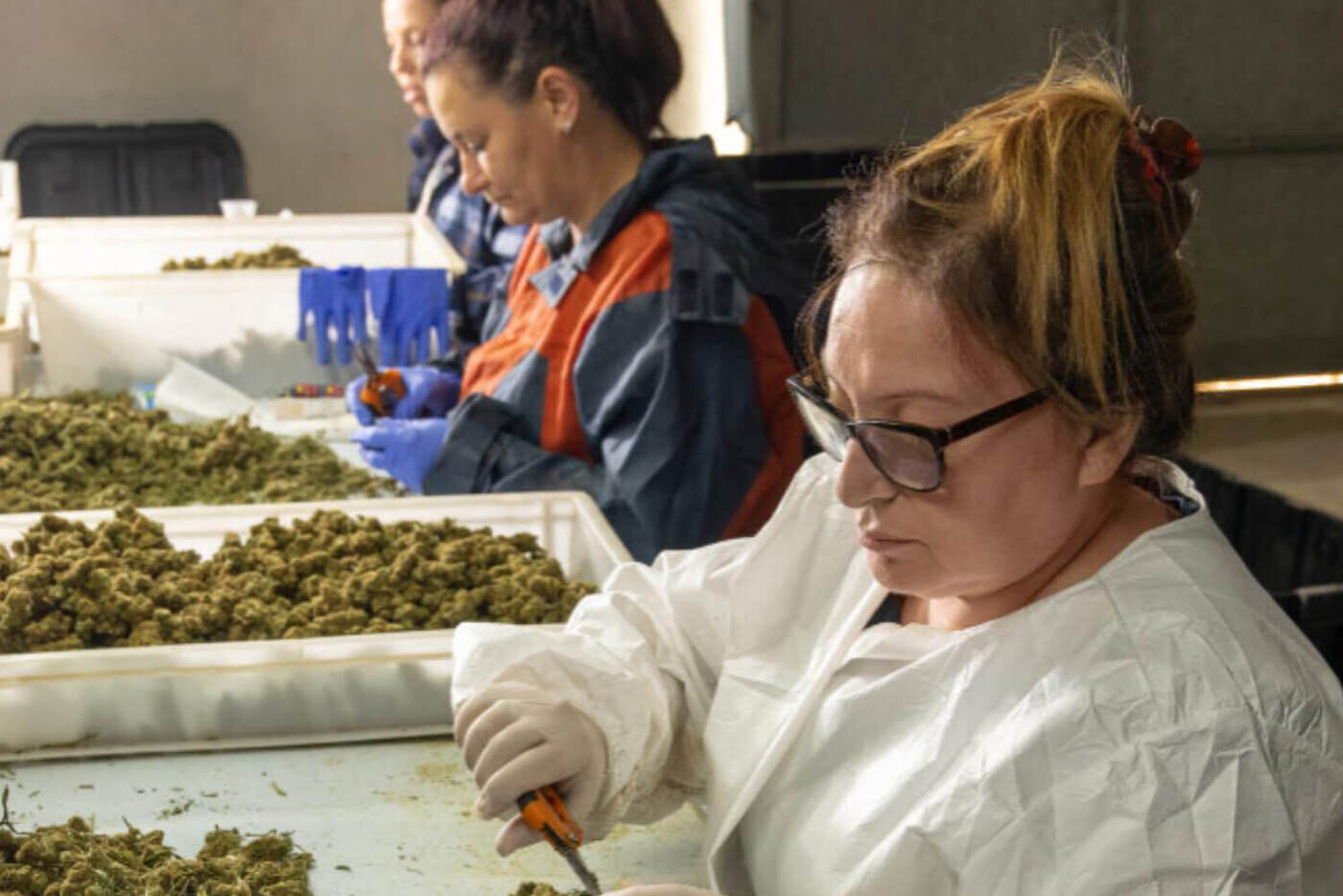
The role of the wholesaler is finished after shipping has been arranged to the distribution center; from that point on, it is the obligation of the distributor to ensure that the items are stocked on the retailers' shelves. This type of distribution is advantageous to large-scale manufacturers and farmers since it simplifies the process of fulfilling orders from a diverse collection of clients. As a result, these businesses may realize significant cost savings due to this strategy.
Numerous cannabis licensees and companies might benefit from the assistance of a marijuana distribution firm if they were to hire its services. Consider the motivations for working with a distribution partner and the potential partners.
Growers are in a hurry to have their cannabis cured removed from the premises to create a way for the following crop. It is in everyone's best interest to collaborate with a distribution center so that cannabis may be kept safe until a producer, an extraction firm, or a packaging factory require it.
To successfully create cannabis products, companies need to purchase large quantities of cannabis flowers. When a manufacturer has access to a distribution facility, they have several benefits, including expandable storage, on-demand fulfillment, and speedy transportation. Additionally, companies may employ cannabis distribution to free up vault space by keeping white-labeled items off-site, which can be accomplished through cannabis distribution.
Distribution centers and dispensaries can collaborate to store supplies off-site, which enables fast refilling in response to fluctuating demand. The most effective cannabis distribution firms can link their operations with pre existing inventory management systems to expedite choosing, packaging, and sending items to merchants before they run out.
Distribution hubs have lately taken on a far more important function in the supply chain for cannabis firms concentrating on CBD or hemp-derived goods. Because hemp goods are legal in the United States, distributors can function as a link between a retailer or producer and the general population. This allows distributors to make money from both parties.
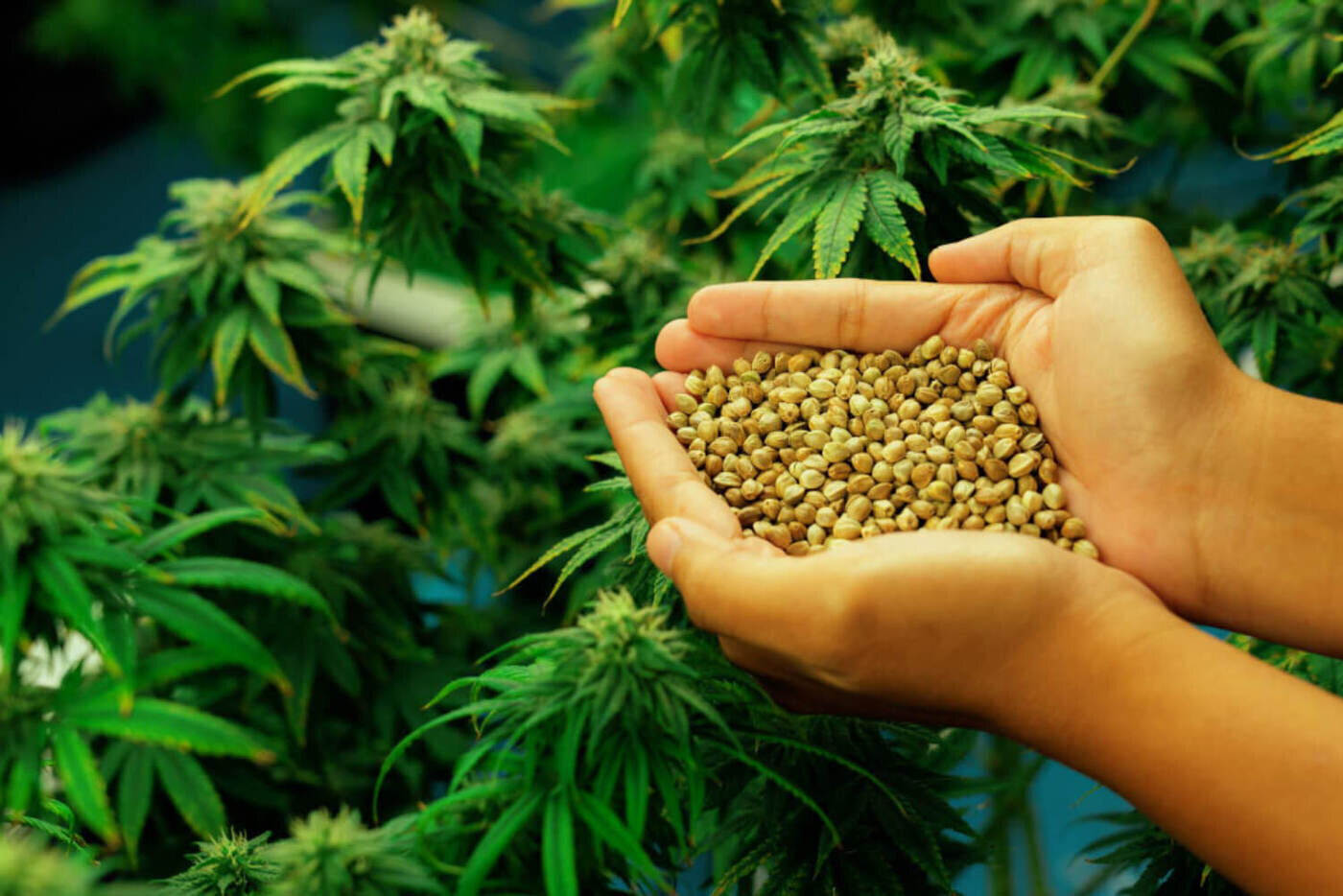
The distribution center is responsible for processing orders submitted by clients on the company's website and sorting, packing, and distributing the products to the customer using the shipping method that the customer has selected. During this transition period, several retailers that sell items connected to cannabis are employing distribution facilities as drop-shipping locations for customer orders.
Any organization might benefit in various ways by collaborating with a cannabis distribution company. Distribution practices have been an essential component of a wide variety of supply chains for a considerable time. For the majority of the same reasons that apply to the distribution of conventional consumer items, they also apply to the distribution of cannabis for the same reasons. Distribution practices must adhere to certain regulations to be legal. Consider the many advantages that would result from having a partnership with a marijuana distributor.
Although there are indications of stability in the cannabis market, it is reasonable to anticipate price shifts brought on by shifts in supply and demand. If manufacturers and dispensaries buy in quantity from a distributor while costs are still competitive, they could save money. The distributor has the option of keeping the goods until either it is required or it can make the greatest possible profit. Compared to purchasing biomass in smaller quantities as needed for extraction, purchasing biomass in bulk can result in significant cost savings for an extractor with limited on-site storage capacity. This is because buying biomass in bulk is more cost-effective than purchasing biomass in smaller quantities.
The distribution hub is an extra link in the chain of cannabis supply, but its existence helps reduce some of the negative effects caused by interruptions in the chain. Wholesalers and dispensaries collaborating to satisfy customer demand can rely on the assistance of professional transport teams if they want to meet their delivery deadlines. Because of these distribution channels, wholesalers and retailers are in a position to direct their efforts toward the development of novel goods and towards meeting the requirements of their end customers.
Transporting cannabis is a business that falls exclusively under the responsibility of cannabis distribution companies, responsible for all associated expenses and details. It may be a difficult and time-consuming procedure to transport cannabis if one does not have the support of a licensed business. A third-party distributor may take care of the logistics involved in transporting your items from you to their distribution center and then to the end client (a manufacturer or a pharmacy, for example). Manufacturers and growers may switch their focus from logistics to product development.
Distribution of cannabis components and products is a business activity like cultivating, manufacturing, processing, packing, labeling, and storing cannabis components and products. The act of buying, selling, and transferring cannabis and cannabis products from one licensee to another is called cannabis distribution. Two separate kinds of distributor licenses may be obtained in Northern California. Licensed as a Type 11 Distributor, can transport cannabis and cannabis products between regulated growing, processing, and distribution facilities and retail locations.
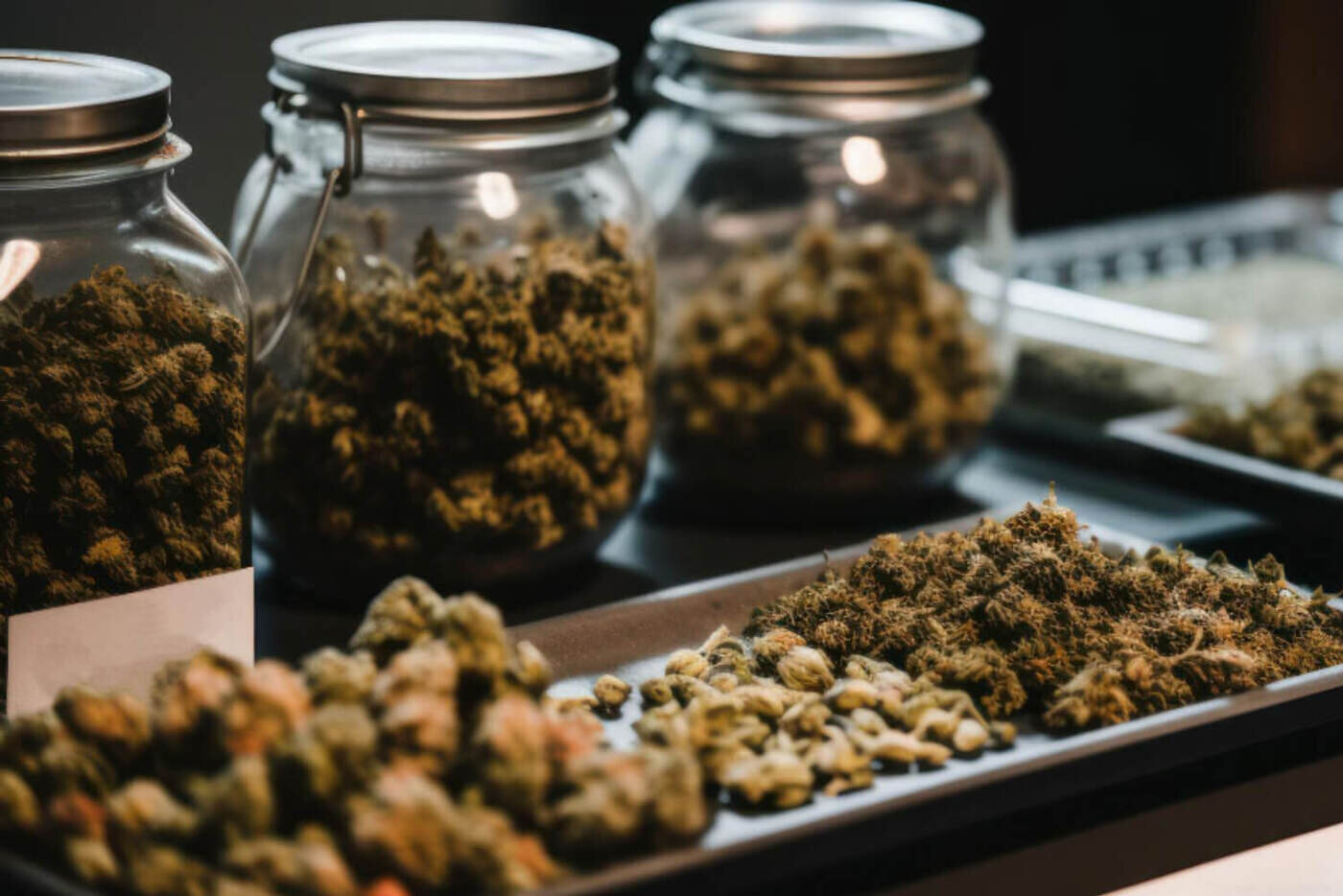
The sole function of a Type 13 distributor license is to allow for the transportation of cannabis and cannabis products between different stages of the cannabis industry's production chain (cultivation, processing, and distribution). The conduct of any further operations requiring a Type 11 license, such as storage, quality control, or testing supervision, is strictly prohibited. The Department of Cannabis Control is in charge of maintaining the tracking and tracing system known as Metrc, which is used to monitor the distribution of cannabis across the state of California. This initiative is responsible for monitoring the existing distribution network that the DCC (Department of Cannabis Control) has in place for cannabis and other goods linked to cannabis.
To start a firm that distributes cannabis, you must follow these criteria.
Before you launch your firm, you and your team should create a comprehensive business strategy. Be sure that you have a good understanding of the long-term goals that your organization has set for itself. You must compile a list of short-term objectives when your business is still in its infancy. The creation of an operations manual, the establishment of a timetable, the registration of trademarks, the detailing of best practices, the negotiation of contracts with recognized testing labs, and the planning of how available cash may be used most effectively are all examples of short-term goals. Consult an attorney if you require legal direction in the beginning phases of establishing your cannabis business.
To develop a distribution center for your cannabis product, you should try your hand at a few distinct business sectors. This endeavor involves more challenges than simply leasing a conventional office space would have. Regulations and restrictions on land use in particular places constrain the scope of activities for certain cannabis firms. You are spared the headache of deciding where in the globe to place your distribution center based only on financial considerations.
In contrast to medical marijuana and cannabis establishments, the quantity of casual clients has a relatively insignificant impact on a business's financial line. In contrast to professional producers, you are not required to cultivate cannabis in an enclosed or open environment. You are free to do either.
It is essential to ensure that the licensed merchants, growers, and manufacturers with whom you intend to collaborate may quickly and easily access your site. Before you are allowed to run a cannabis company for profit lawfully, your local government may have extra standards that you will need to fulfill. In certain jurisdictions, a land use or conditional use permit is the only requirement to be met.
Before the local government even considers awarding a business license to you in certain other jurisdictions, you could be required to submit a cannabis-specific licensing application along with a mountain of supporting evidence before they would even consider it. An attorney that specializes in the representation of cannabis companies in legal matters may be able to provide you with valuable information on the possibilities of the properties you are contemplating purchasing based on zoning, geography, landscape characteristics, businesses in the immediate area, and other considerations. They might also walk you through the process to ensure you can meet the local licensing standards.
After you have satisfied all of the conditions imposed by the local government, you are eligible to submit an application to the DCC for a distribution license. This California department is in charge of enforcing cannabis industry rules and providing licenses for cannabis businesses involved in the sector. If you have a distribution license, it is legal for your business to transport cannabis and cannabis products that you have grown or made inside California.
Additionally, you are permitted to transport cannabis goods for the benefit of other enterprises lawfully. You may get help assembling the necessary documentation for each stage of the application process by using the application materials supplied to you by DCC. These resources include things like:
The next thing that has to be done is to create a new user account in the DCC licensing system. You must choose a licensing method to launch a cannabis distribution company to sell the drug legally. Select the type of distributor licensing that corresponds most closely to your requirements, then complete all the necessary forms inside the DCC licensing system.
Please provide the required documentation and information on the owners and investors in your cannabis distribution company. Because the licensing system maintains a record of your work in progress, you should consult an attorney before submitting your application. The application procedure will be finished after electronic signatures, and the submission has been sent to the DCC. It is important to remember that the DCC will only consider your application if the fee is paid.

For DCC to begin considering your application, the fee must first be submitted. When you have finished submitting your application for a license and logged into the system, it will provide instructions on making the necessary payment. Keep a watch on your mailbox because the DCC licensing team will let you know if any components of your application are missing and offer guidance on how to fill them in if there are any missing pieces.
After your application has been approved, the DCC will email you the essential procedures to follow to pay the licensing charge for your business. The amount of the charge will be determined based on your estimated total gross revenue. You may pay for your license using cash, a cheque, a money order, or an electronic transfer, among other payment methods. You can also schedule a time to pay in cash at the DCC office.
As soon as the DCC receives your application and the fee for the distribution permit, it will immediately issue your cannabis distribution license online. If the DCC accepts your application, you can get your licensing certificate using the online system. At your distribution facility, you should prominently display your certificate to establish compliance with the regulations and educate customers and clients that you are an authorized supplier of cannabis. Your DCC cannabis distribution license is valid for one year during its validity term.
Please note this analysis is based on California's regulatory framework, and your particular circumstances may also impact the implementation of these suggested steps.
The DCC will consider your application for a cannabis distribution license only if it is accompanied by an assurance that you will comply with all relevant laws and regulations. State and municipal authorities are expected to pay an unannounced visit to your company to verify that you comply with all regulations about the cannabis industry. The DCC created these rules to ensure that all licensees, including cannabis dealers, are held to the same high standards throughout the industry.
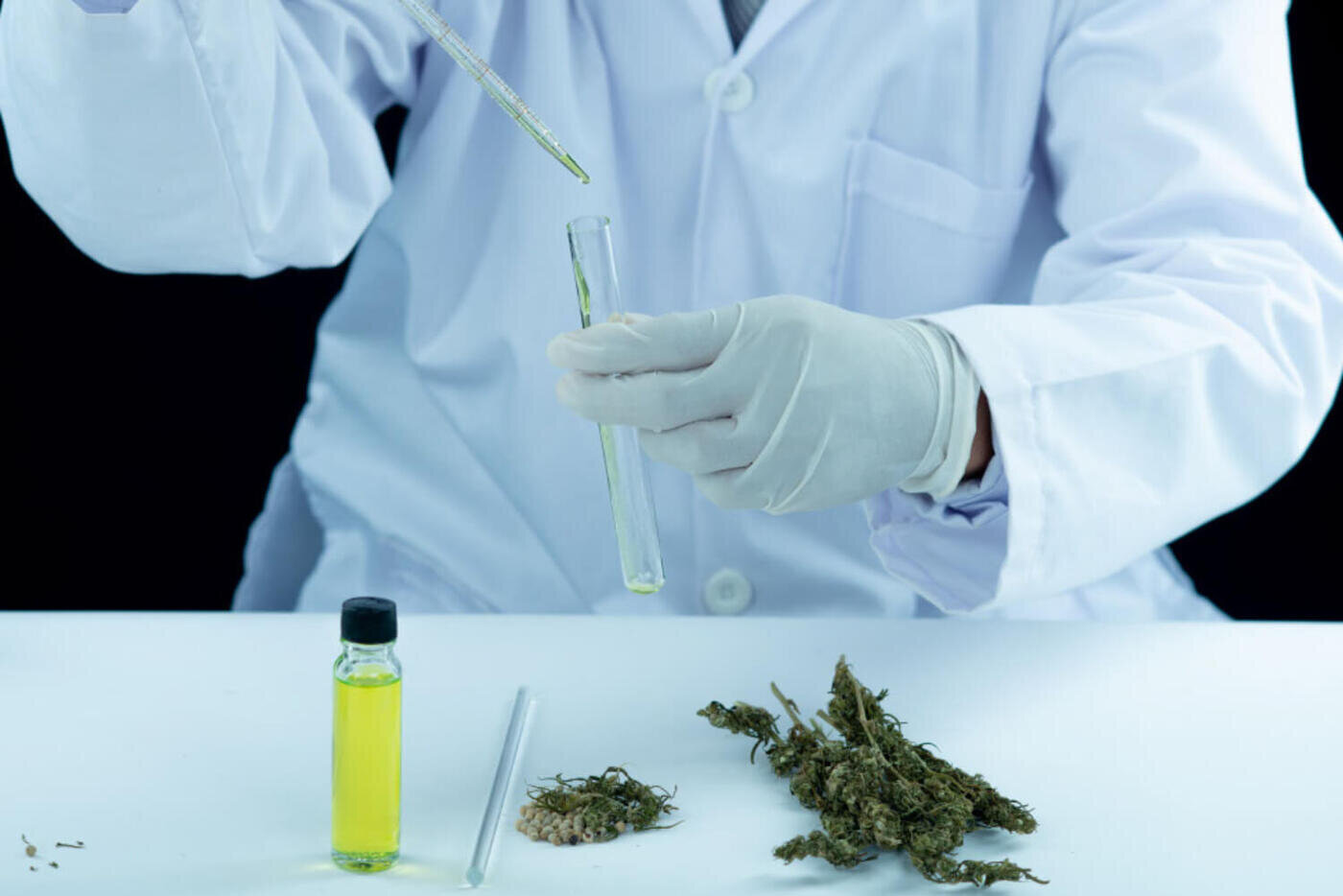
Things like eligibility criteria, terminology, and requirements for financial stakes and ownership are all attempted to be standardized by the regulations. They detail the proper protocol for companies operating in the same sector to follow while interacting with one another and exchanging product samples. The laws in place might differ from one location to the next. You may need the assistance of a cannabis attorney to comply with all of the rules and regulations that apply in your region. You and your staff are required to comply with the following Commercial Cannabis Regulations for Medical and Adult Use that the DCC has established:
You are required to carry out activities in the correct manner if you wish to keep and renew your license to distribute cannabis. It is possible to feel overwhelmed by the number of laws that must be followed daily and in some exceptional circumstances.
As the cannabis business continues to develop rapidly, there is an increasing demand for sophisticated software to control the distribution of cannabis. Cannabis distribution software is a comprehensive system that automates every process stage, from stock management to sales monitoring and legal compliance. This type of software was developed exclusively for the distribution of cannabis.
The capacity of cannabis distribution software to perform automated stock management is among the program's most significant advantages. So, wholesalers have an easier time keeping track of the specifics of their goods, such as the strains, the quantities, and the pricing. Distributors can make well-informed judgments on what products to stock up on and when to resupply by using up-to-the-minute data. Thus, there is less chance of running out of resources and no longer a requirement to keep extra supplies on hand.
The capacity of cannabis distribution software to track sales and maintain client information is an additional advantage offered by the program. Wholesalers can discover which items sell the best, which client groups purchase the most, and which geographical regions create the most profit by analyzing the data from their sales. You may utilize this knowledge to your advantage when deciding on your product's future and its advertising. In addition, collecting customer data may benefit distributors since it helps them better understand their target demographic and enables them to tailor their offerings to meet the needs of that demographic.
Distributors may find it easier to comply with all the relevant rules and regulations using software developed expressly for the cannabis sector. Distributors can avoid expensive penalties and fines by integrating compliance checks into their systems to guarantee that they adhere to all applicable rules and regulations. Weedbates Connect, which is tentatively scheduled for launch in early 2024, will be a major assistance to distributors and may eventually come for all distributors' needs nationwide.
The forthcoming Weedbates Connect, with its intuitive design and comprehensive features, promises to be a superior choice for distributors of every type and size. Easy to incorporate into any distributor's workflow, Weedbates Connect will be compatible with a variety of systems, including accounting and point-of-sale software. The services provided by Weedbates Connect will include real-time sales reporting, as well as inventory and order management capabilities. Additionally, Weedbates Connect will conduct inspections to ensure compliance, offering an extra layer of assurance for distributors.
Weedbates Connect will provide a robust suite of features including inventory management, order processing, and regulatory compliance monitoring. What will also be unique about Weedbates Connect is its ability to interface with state-controlled tracking systems like METRC and BioTrackTHC. Since it complies with state regulations, distributors can rest easy knowing they won't face any state fines or penalties.
The software for cannabis distribution is an important instrument required for controlling inventory, monitoring sales and compliance, and making well-informed business choices. Distributors today have access to various software options. They may pick software that caters to their particular requirements but also assists them in expanding their business operations in this continuously evolving industry.
The legalization of cannabis has given rise to a new business, which has resulted in a significant increase in the need for labor. As the cannabis sector grows, more employment will become available for people who meet the requirements. Distribution, which comprises transferring cannabis goods from producers to sellers, is one of the most significant components of the cannabis industry. The distribution also refers to the movement of cannabis plants.
Being a delivery driver in the cannabis sector is often ranked as one of the jobs that attract the most applicants. Delivery drivers are responsible for transporting cannabis goods from farms to retail locations. Customers can then purchase these items. They must have a valid driving license and a clean driving record to be considered. They must know what they are transporting, have the expertise to handle it securely, and know how to convey it.
The distribution of cannabis is a crucial part of the responsibilities of logistics management. This industry's managers oversee the transportation and distribution of cannabis goods. They need to be able to take charge of a group of delivery drivers and have excellent organizational skills and attention to detail. Their experience also extends to the laws and regulations that regulate how cannabis products can be transported from one location to another.
The team in charge of the warehouse is accountable for both the delivery of cannabis items and their subsequent storage. They are required to have knowledge of the many strains of cannabis as well as the ability to work with big volumes of the drug. At the warehouse, they must be able to operate both pallet jacks and forklifts. Additionally, there is a significant shortage of distribution labor within the cannabis sector.
When it comes to the market for cannabis distribution, the importance of compliance authorities cannot be stressed. This personnel is in charge of ensuring that the law conducts the sales of cannabis by monitoring the transactions. They need to be aware of the rules that govern the transportation and distribution of cannabis products and can educate others on those laws.
Distributors of cannabis products must have access to an open market to sell their wares to retail locations that specialize in selling the substance. They should also be able to collaborate with the producers to guarantee that their products receive the most effective promotion possible. Individuals with previous experience in marketing and sales may be considered for these opportunities.
Working in the cannabis distribution sector has several advantages, including the industry's welcoming attitude toward new ideas and advancements. There will be a significant need for those with prior experience and expertise in the distribution of cannabis. As a result of the sector's growth, new prospects for expansion will become available.
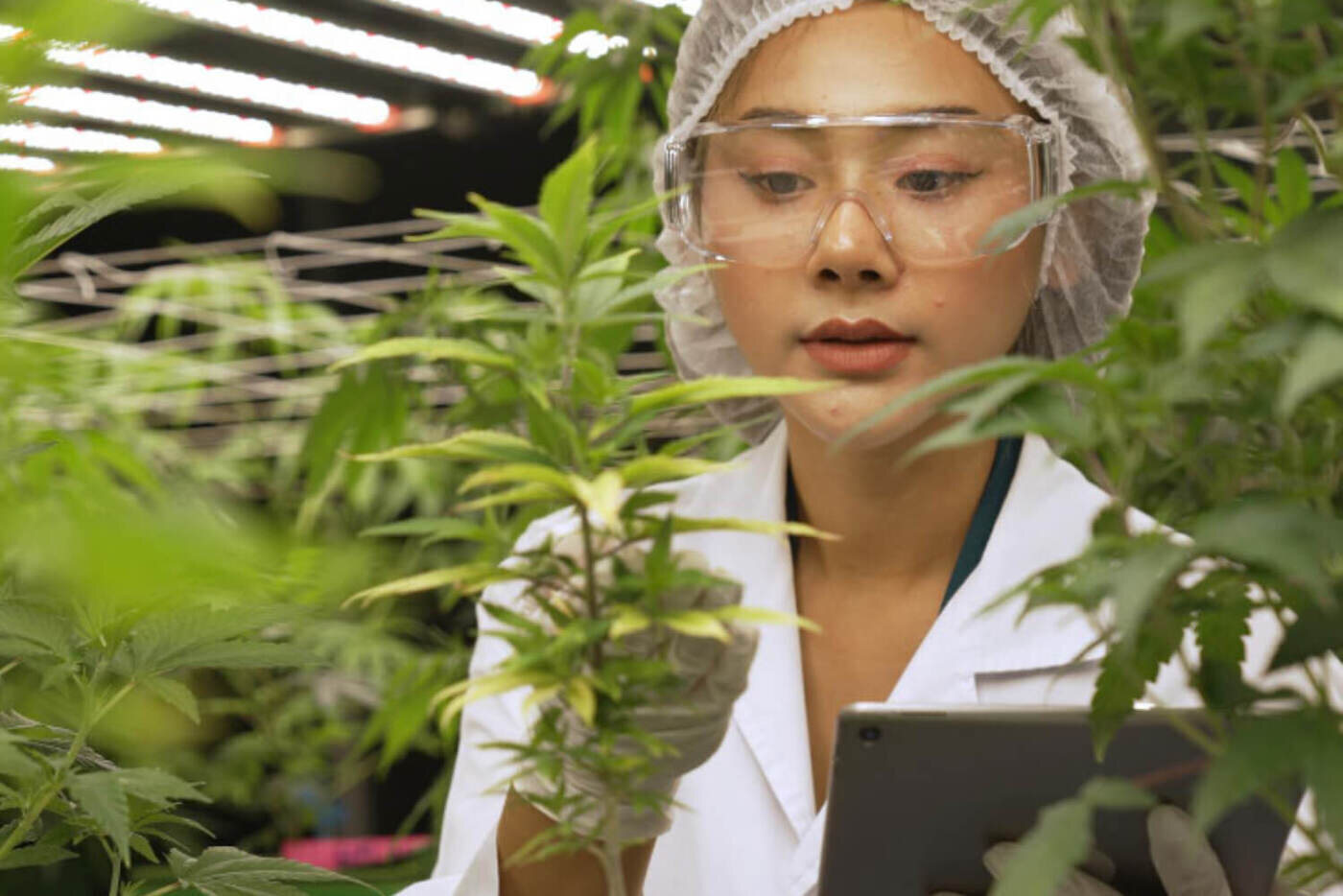
Working in this industry industry offers other benefits, including the possibility of significant earnings. Several occupations are available here that pay well, particularly for individuals with prior experience in the appropriate industry and knowledge in that sector. Additionally, some cannabis companies provide alluring salary packages, some of which may include health insurance and retirement programs for their employees.
If you're searching for a job in the cannabis distribution industry, highlight any related experience you may have. Experience in transportation, supply chain management, or logistics may be necessary. In addition, it is essential to show that you have a solid grasp of both state and federal regulations regarding cannabis. In addition, many businesses are looking for candidates who are enthusiastic about the industry and committed to its responsible and sustainable growth.
Cannabis distribution listings are an excellent resource for anyone seeking employment in the cannabis sector. There is a growing demand for skilled professionals in this field, and many opportunities exist for those with the appropriate knowledge and skills. Using resources like online job boards, attending industry events, and interacting with cannabis staffing businesses, job seekers may find their ideal position in the exciting and rapidly evolving sector of cannabis distribution.
In conclusion, the business that deals in the distribution of cannabis is fast expanding while also undergoing evolution. It is anticipated that there will be a rise in demand for cannabis products of superior quality as legalization gains ground in more and more countries throughout the globe. Because of this rise in demand, there is a growing requirement for distribution systems that are both effective and dependable. In order to maintain their success in this cutthroat market, businesses in the cannabis sector need to ensure they are always current with the most recent advancements in both technology and laws.
Distributors, for the most part, do not engage in the cultivation of cannabis or retail sales directly to consumers; rather, they function as intermediates, facilitating sales between other corporations rather than direct sales to end users. Distributors also do not engage in retail sales directly to other businesses. In most instances, distributors do not engage in cannabis production. In certain areas, like California, it is the obligation of cannabis distributors to have the items that they sell tested in a laboratory before they are sold to customers. In contrast, producers in other states, such as Oregon, are required to complete this step in advance.
Distribution of cannabis is an essential part of the cannabis industry since it facilitates the movement of cannabis products from farms and production facilities to retail outlets and end users. The process of delivering cannabis commodities from one site to another while ensuring that the things are given in a secure and legal manner is referred to as cannabis distribution. The sales of cannabis are concentrated primarily in two different markets: the medicinal and recreational markets.
One of the most important benefits of using cannabis distribution software is that it can carry out automatic stock management. This is one of the program's many strengths. Therefore, it is much simpler for wholesalers to maintain track of the specifications of their products, including the strains, the quantities, and the prices of such products. By employing up-to-the-minute data, distributors are able to make well-informed decisions on the items they should stock up on and when they should replenish. As a result, the risk of depleting available resources is reduced, and there is no longer a demand to store more supplies in reserve.
A further benefit provided by the program is the capacity of cannabis distribution software to keep a record of customer information and track sales. Through an analysis of the data from their sales, wholesalers are able to determine which products have the most demand, which customer demographics make the most purchases, and which parts of the world generate the most revenue. When it comes time to decide the future of your product and how it will be advertised, you can put this information to good use and gain an advantage. Additionally, distributors may profit from collecting customer data since it assists them in better understanding their target demographic and enables them to adjust their offers to match the requirements of that demographic. This is an additional benefit of collecting customer data.
Additionally, there is a complicated procedure involved in the distribution of cannabis goods, which needs careful planning and management in order to be successful. Every stage, beginning with cultivation and continuing through shipping and delivery, is subject to a plethora of stringent laws and safety precautions. Cannabis companies may simplify their distribution procedures and guarantee that their clients will be happy with their products if they form strategic alliances with seasoned industry experts and make effective use of the appropriate tools and resources.
The future of cannabis distribution appears to have a lot of potential, but in order to stay up with the rapid advancements being made in the business, ongoing innovation and cooperation will be required. The number of individuals using cannabis for therapeutic and recreational purposes is expected to continue to rise, which means there will be an increased demand for delivery methods that are both effective and dependable.
Disclaimer: This material is for informational purposes only and should not be relied on for legal, medical, financial, or any other form of professional advice.